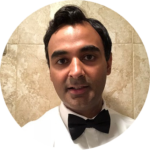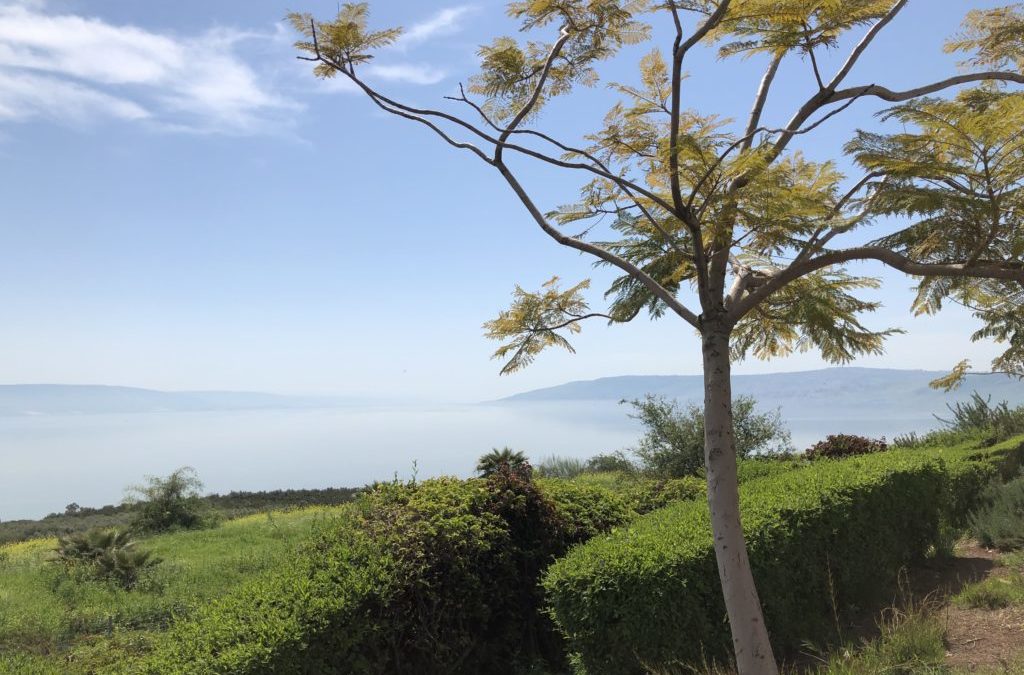I am writing this blog post from Jerusalem, Israel. This is a country I’ve wanted to visit for some time, and last year my mom—who is very much into history and visiting ancient places—suggested we do an organized group tour to take in all the sites. We’ve been here for a week, starting in Tel Aviv, going north to Caesaria (originally built by King Herod), before heading to Nazareth, and then down to the Dead Sea. On the way, we stopped at a number of biblical sites including the Sea of Galilee (which was amazingly tranquil) and the Mount of Beatitudes (pictured above), which is the historic site of Jesus’ Sermon on the Mount. The highlight of this trip has been spending the last three days in Jerusalem and visiting the Church of the Nativity in Bethlehem.
The Old City of Jerusalem is famously divided into different quarters, and any visitor can palpably sense how the different religions and cultures all meet in this one place. The history of this whole region is well-known—and tragic. When you learn more about events going back thousands of years, you also realize that the tensions and strife which exist here today are nothing new. They have been going on since ancient times.
We spent a morning visiting the Yad Vashem Holocaust museum. I have been to several other Holocaust museums and memorials around the world—including Auschwitz a couple of years ago (I wrote about that experience in this article). The one here in Israel, is uniquely moving for obvious reasons. Our guide told us that the take home message of the museum to all its visitors, who want to make a difference for the future, can be summed up in just two profound words: Be Vigilant. She expanded on this theme, as did the whole museum. The horrors of World War 2 and the Holocaust were, after all, not that long ago. There are still many people alive today from that time, who remember the speed at which events unfolded to take humanity to a new low.
The whole history of mankind is sadly conflict after conflict, war after war, massacre after massacre. Even before, and since, the Holocaust. Human beings are intensely tribal by nature and will always find reasons to divide themselves. This is something irrespective of culture or even political leaning. Extremist “my way or the highway” intolerance is the real enemy, and the only hope to avoid future conflict is to not let extremism win. Be vigilant and speak up when you see any tendency towards intolerance or suppression of freedom. Be vigilant and speak up when you see any deliberate bullying or attack on liberty. Be vigilant and speak up when you see an injustice, even if it doesn’t affect you (our guide used the term “sitting back on your sofa and being okay with things as long as you are okay”). And importantly—that vigilance also means being consistent, and always includes protecting the rights of people who think and live differently from you, in a respectful and peaceful environment.
Hopefully, the last few decades and technological advancements in particular are yielding a new world. In reality, many of the everyday problems that we think we have in western countries—including the United States and United Kingdom, which have evolved and established systems in place—are first world issues, blown out of all proportion by the 24-hour sensationalist news media, especially when one looks at what the rest of the world has to put up with on a daily basis. Nevertheless, humans will always be humans, and it doesn’t take much for us to be pushed over a precipice. Therefore, if there’s one thing aside from the stunning history and scenery of Israel, that will stay with me from this trip, it’s that very message at the Yad Vashem: Always be a vigilant person.

Suneel Dhand is a physician and author. He is Co-Founder at DocsDox and an independent healthcare experience and communication consultant.
Follow me on:
Instagram: suneeldhand
Twitter: @SuneelDhand
Facebook: Dr Suneel Dhand


Suneel,
Another good piece and out of your usual genre. Enjoyed it.
I have continuing argument with my husband about this violent history and one of its origins and that is a patriarchal society. Those tribes that establish men as the power group and deny voice to women has to have some effect. Is this what we see now across the world even here in the US? Would we have as many violent conflicts if there was more mediation and compromise rather than surges of testosterone that compel combatants to throw down the gauntlet or challenge to a duel?
I do now know the answer to my query but when I see how some tribes treat women less well than cattle, I just wonder.
sue
Hi Suneel ,
I worked in Jerusalem for a couple of years at Haddassa Ein Karem Hospital
I am fluent in Hebrew .
Glad to hear you were there . Interesting place .